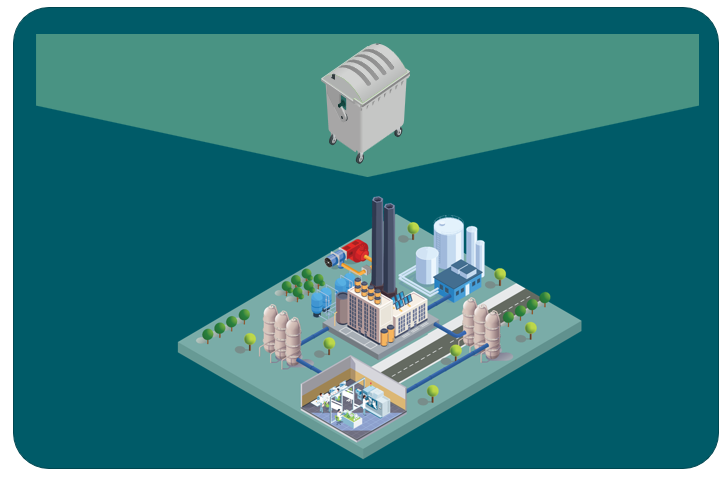Objective: Evaluate attractiveness to jointly develop a waste gasification–based sustainable methanol supply chain, assess preferred region, technologies, capacity and business model.

Project Approach:
- Phase 1: Methanol route assessment (by cost, CO2 impact and regulation relevance)
- Phase 2: Assessment of joint waste-to-methanol build-up & detailing business case (Key regions, tech providers, feedstock sources)
- Phase 3: Spin-out preparation (RfQ, contracts and tech detailing)
Relevance:
Methanol can be produced from a range of feedstocks, including fossil fuels (the conventional source), as well as from waste materials, bio-based materials, and through the capture and utilization of carbon dioxide. Sustainable methanol, a lower-emissions alternative to conventional methanol, is a building block for more sustainable (low-emission, circular, bio-origin) chemicals.
Despite these benefits, the global methanol supply is expected to remain dominated by grey (fossil-based) methanol in the coming decades. Identifying pathways to bolster sustainable methanol will be key to enable the production of more sustainable chemicals overall, helping the industry achieve its emissions reduction targets.
CHALLENGES TO ADDRESS:
Sustainable methanol only 10% of announced capacity in 2030
VALUE OF GIC’S COLLECTIVE APPROACH:
Regulation is driving sustainable demand and projects; growing demand driven bymaritime in short-term, jet-fuels in mid-term and chemicals in the longer term
MSW–based methanol is attractive route due to cost, CO2 and regulation for low-carbon/circular content products and landfill reduction
GIC members have strong capabilities from waste management to chemicals, enabling a collective approach to de-risk the project
Understanding supply landscape and fundamental technoeconomic viability of sustainable methanol is a core need for MTO
GIC project members will identify technology providers, map prioritized regions and potential sites for production & develop a clear business case
